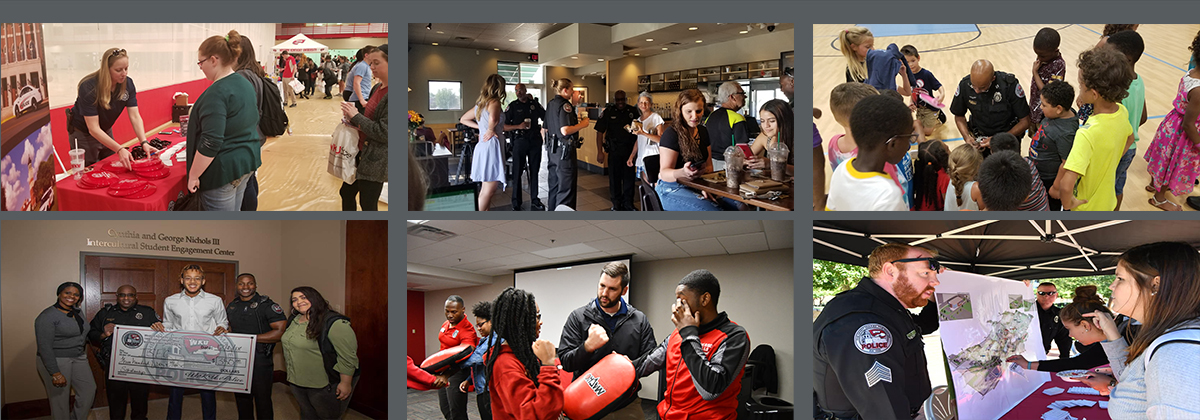
Community Policing
The Western Kentucky University Police Department has been committed to implementing a community policing strategy that is designed to encourage interactive partnerships between law enforcement agencies and the communities we serve. These partnerships help our community find solutions to reduce crime through collaborative problem solving and improved public trust.
This strategy recognizes that police, residents, neighborhood stakeholders, and other law enforcement agencies have to work together to address all the conditions that can lead to crime. No one can do it alone. Each and every one of us has a role to play in improving the quality of life in our communities. Making residents an active partner in preventing and reducing crime in and around our campus community, is vital in helping to create an environment that is both safe and conducive to learning.
Community policing on a campus has an educational component that is uniquely different than that of municipal or city police agencies. While municipal agencies may offer a DARE program in the local schools, or offer safety classes, there isn’t that expectation from the general public that the police serve as educators. Here on our campus, the levels of expectation for service are high, and we continually strive to meet those expectations. As the relationship between the police and the community, especially students, develops, the duty of meeting those expectations grows. Whether it is unlocking a vehicle or conducting an educational program on the dangers of alcohol abuse, the role of our university police officers is diverse.
Community Policing services include:
- Various patrol methods—Vehicle, bike, and foot patrols are three most popular ways for our officers to patrol campus. Foot patrol of campus buildings and grounds is an effective way to be both interactive with the community and proactive in enforcement.
- Motorist Assist Program—This service provides individuals with battery jump-starts.
- Safety Escort Service—This program provides an escort across campus during evening hours.
- Safety Forum—Campus wide lecture series on crime prevention and safety awareness.
- Victim Assistance—Information packets containing referral services both on campus and in the community are made available to victims of crime.
- Educational Programming—Crime prevention programming made available campus wide. Topics include domestic violence prevention, sexual assault prevention, alcohol and drugs, theft prevention, ID theft prevention, risk management, club drugs and personal protection.
- Self-defense classes.
- Clery & Minger Report—Annual crime report that provides information about the police department, programming, university alcohol and drug policy, how to report crime, sexual assault prevention and crime statistics for a three year period.
- Daily summary—A log of reports taken by the police department. This report is posted daily at the department and often printed in the university newspaper.
- Campus Alerts—Alerts issued via campus wide e-mail, text messages, and social media whenever there are significant occurrences of crime in or around the campus.
- Safety Inspections—Inspections are conducted of campus buildings checking exterior door locks, campus lighting, fire alarm systems and equipment.

